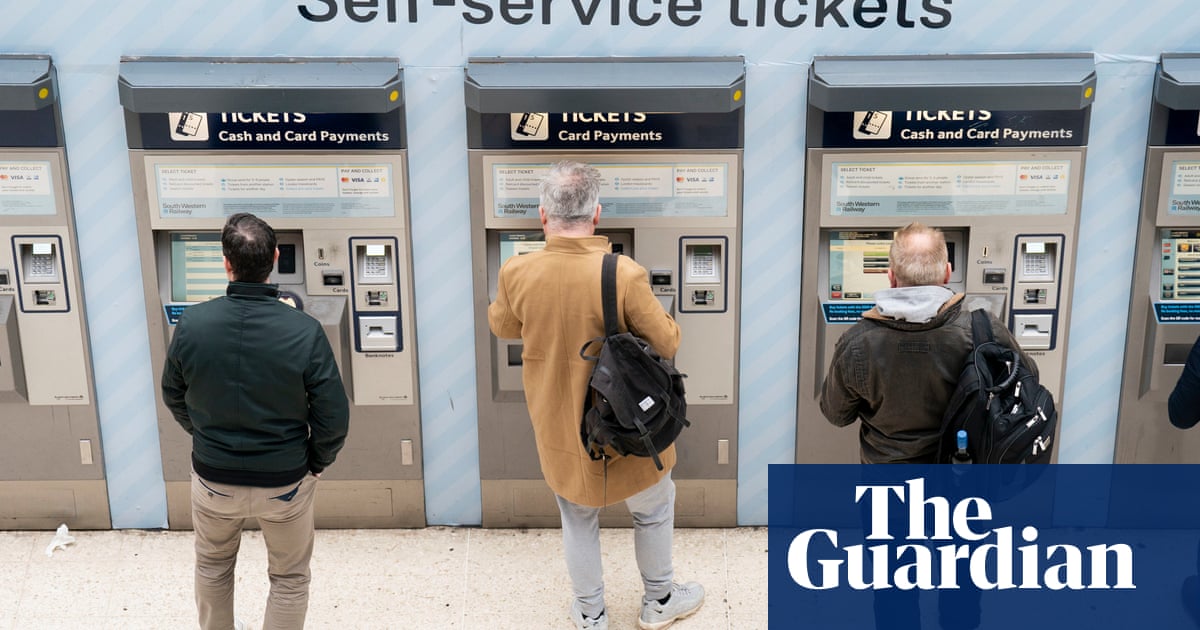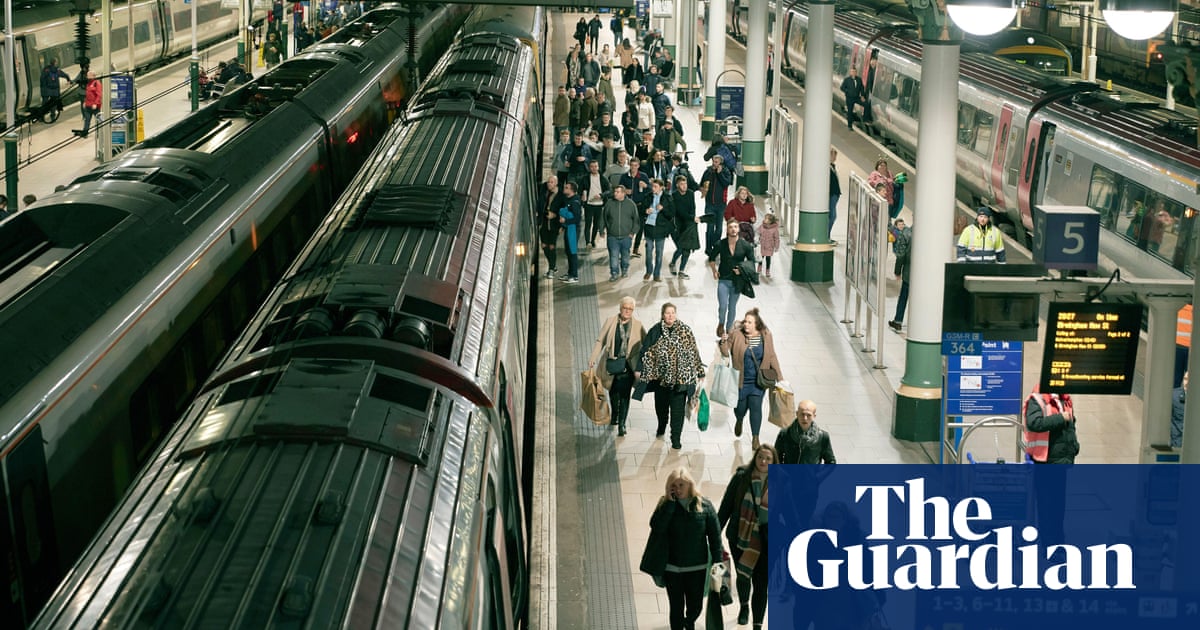
Rail fares in England and Wales will increase by 2.6% on Monday, the first time the government has chosen to put up prices above RPI inflation since 2013, in a move that has been criticised for further pricing middle income earners out of rail travel and undermining the government’s green credentials.
The price rise comes despite calls for freezes or even discounts to help attract passengers back to the railways.
The government said the additional 1% rise over inflation came on the back of extraordinary public spending to prop up rail services during the pandemic when revenues fell away.
The annual fare increase was delayed for two months by the Department for Transport – partly to allow season ticket holders to renew at a lower price before returning to work, officials said.
And relatively few commuters are likely to be immediately affected this year: passenger numbers on trains are now around 14% of normal levels, largely due to coronavirus travel restrictions.
However, critics have said the move would deter passengers from taking public transport again and potentially lead to more road congestion. Car use has declined only slightly in the last year, despite home working and curbs on travel.
The TUC warned that it would slow urban recovery where commuters rely on the trains. General secretary Frances O’Grady said: “This inflation-busting rise will not help commuters and city centres recover from the pandemic. The government needs a credible plan for the future of rail that gives passengers better value.
“We need the railways back in public hands.”
Following the fare increase, the average commuter will pay £3,144 for their season ticket, which equates to a 43% or £950 increase in the last decade, according to research from Labour.
It has analysed costs on more than 180 train routes since the Conservatives came to power in 2010, and found that average fares have risen two-and-a-half times faster than wages over the period.
Labour has projected the highest fare rise to be on a Avanti West Coast season ticket between Birmingham and London Euston, which will have risen by £3,467 since 2010, to a total cost of £11,204. Meanwhile it identified the largest percentage increase to have occurred between Tame Bridge Parkway near Walsall and Nuneaton, where the cost of an annual season ticket will have risen by 63% since 2010.
Jim McMahon MP, Labour’s shadow transport secretary, said rail passengers will have to pay even more to use the services they rely on, after the worst economic slump in 300 years.
“This fare hike will make rail unaffordable for many and discourage people from getting back on to the network when lockdown restrictions ease in the coming months,” McMahon said.
The Campaign for Better Transport has also warned that the fare rise could deter commuters from returning to workplaces in the coming months, further delaying the economic recovery. It said flexible tickets were needed for part-time workers – and called on the government to increase fuel duty on cars in Wednesday’s budget instead of raising fares. Transport workers’ union the TSSA called the hike in fares “lamentable” and criticised the government’s “utterly misguided approach” towards getting passengers back on to trains.
Industry body the Rail Delivery Group said it wants to work with government to recast how train passengers buy their fares.
“We want the whole country to benefit from a new, more flexible system where people pay-as-they-go and automatically get the best deal at the end of the week or month, similar to London,” said Robert Nisbet, director of nations and regions at the Rail Delivery Group.
“This would deliver a system which incentivises more people back to the network”.
The government’s power to set rail fares should be scrapped, according to the Liberal Democrats. Sarah Olney, Lib Dem spokesperson for transport said it was a “grossly unfair hike” and called for “an independent agency with real teeth to give a fair deal to passengers”.
The rail industry has called on government to reform fares and ticketing to cut costs and simplify the system. Changes were expected under the Williams Review, but the government-commissioned report by Keith Williams and ensuing white paper have yet to be published.
However, it is understood that all rail operators will be asked to bring in some form of flexible season tickets this year, to make journeys more affordable for regular commuters working only a few days a week.
A DfT spokesperson said the government would set out further plans to offer cheaper, more flexible tickets for commuters in due course.
They added: “Passengers returning to the railway deserve punctual and reliable journeys at a fair price. This is the lowest increase in four years – despite unprecedented taxpayer support for the rail industry during the pandemic of around £10bn, and billions more being spent on new infrastructure.”
Fares within Scotland will rise by a maximum of 1.6%, in line with last July’s RPI figure, with some fares capped at just 0.6%.












